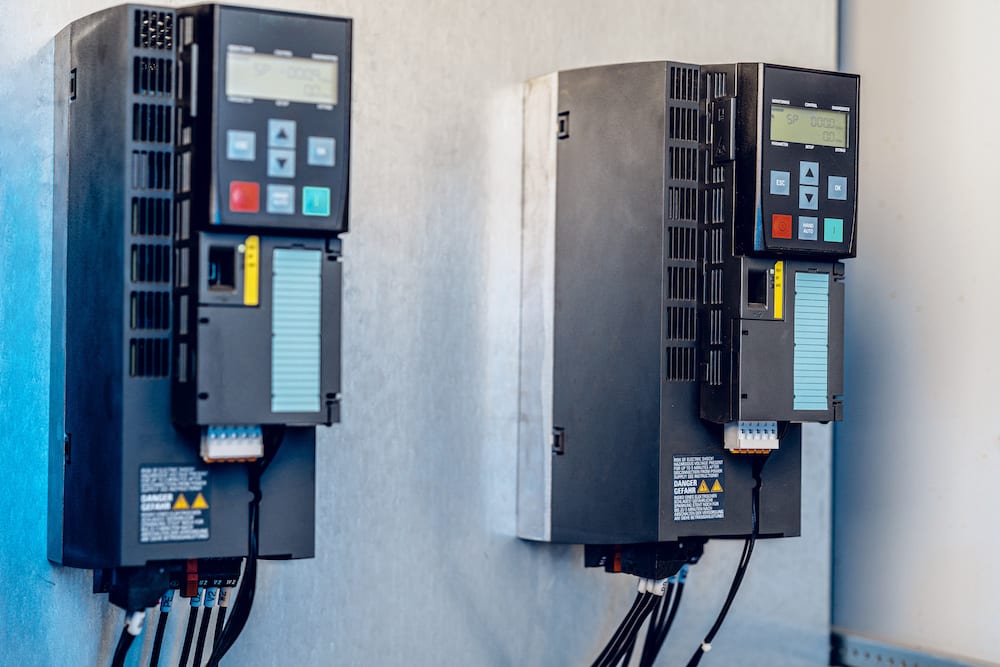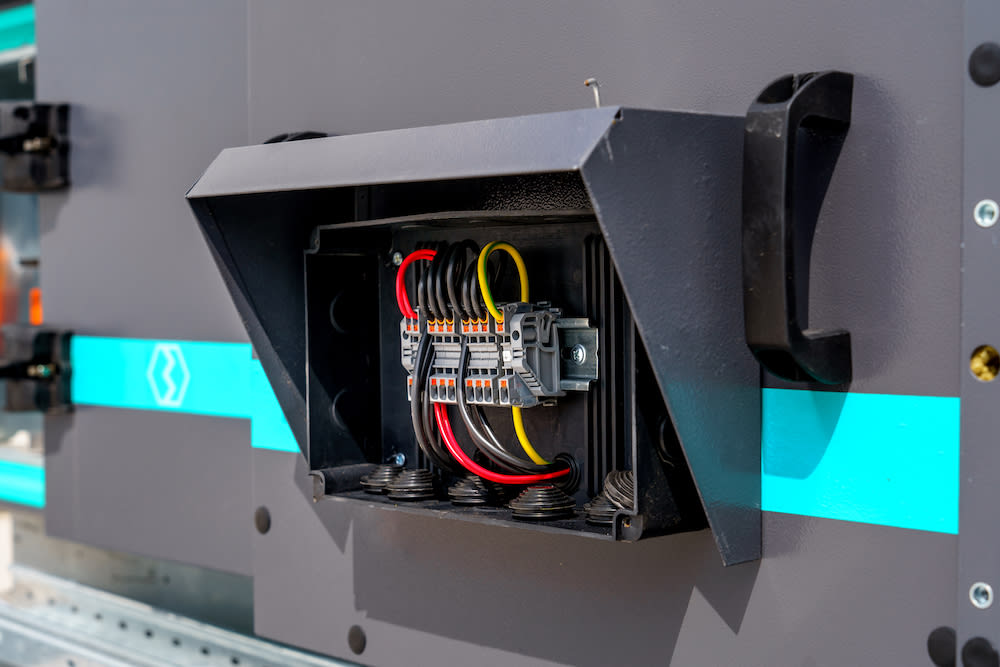- Published 21 Mar 2024
- Last Modified 21 Mar 2024
- 5 min
Leveraging Inverter Drives for Energy Savings in Malaysian Manufacturing
Read about how adjustable frequency drives enhance manufacturing efficiency, cut energy costs, and support sustainability.

In the heart of Malaysia’s bustling manufacturing sector, the clarion call for energy efficiency has never been louder. With rising energy costs and environmental concerns taking centre stage, Malaysian manufacturers are increasingly seeking ways to optimise their operations for sustainability and cost-effectiveness.
Enter the adjustable frequency drive, an industrial electronic device that promises to reshape how manufacturers think about energy consumption and sustainability.

Understanding Inverter Drives
An inverter drive is also referred to as an AD drive, adjustable speed drive, variable speed drive (VSD), adjustable frequency drive, or variable frequency drive (VFD). Inverter drives are designed to fit between an electrical supply and a motor.
At its core, an inverter drive controls the speed of an electric motor. It does so by varying the frequency and voltage supplied to the motor, allowing for precise control over its speed and torque.
This variable speed control is not just a neat trick; it’s a critical tool in energy saving. It is believed that inverter drives can reduce energy consumption by approximately 20-50%. By matching motor speed to the load requirements, inverter drives significantly cut down the energy used during production processes.
The Significance of Energy Efficiency in Malaysian Manufacturing
Malaysia's commitment to sustainability is evident in its national policies, including the Malaysian Energy Efficiency and Conservation Act. This policy aims to regulate energy consumption in three areas, namely large energy consumers within the industrial and commercial sectors, office buildings, and energy-using products.
By adopting energy-efficient industrial electronic devices like adjustable frequency drives, manufacturers can align with Malaysia’s sustainability goals while maximising energy efficiency.
Malaysian Standards and Regulations for Energy Efficiency
Adherence to national standards, particularly the MS ISO 50001, which delineates criteria for energy management systems, is paramount for manufacturers keen on enhancing their energy efficiency. This standard plays a critical role in the current environmental context. Compliance with ISO 50001 ensures that manufacturers’ operations are inspected, tested, and certified against the premier management system for energy efficiency, yielding significant benefits.
These advantages include recognition of their commitment to sustainable practices, enhanced credibility in the marketplace, and an improved corporate image, all contributing to a competitive edge in an increasingly eco-conscious industry.
Moreover, with the introduction of the Energy Commission of Malaysia (Suruhanjaya Tenaga) as the regulatory body overseeing energy efficiency measures across various sectors, the importance of adopting energy-efficient measures has increased. Manufacturers are now more encouraged to use energy-saving devices such as adjustable frequency drives to comply with national standards.

Selecting the Right Inverter Drive for Your Application
Choosing the right adjustable frequency drive requires careful consideration of motor size, application type, and energy efficiency goals. It's crucial to match the drive’s capacity with the motor size to avoid underperformance or damage. The application's specific needs, such as speed and torque requirements, dictate the selection to ensure operational precision.
Additionally, compatibility with existing machinery ensures seamless integration and avoids costly modifications. By aligning these factors — motor compatibility, application specificity, efficiency, and system integration — manufacturers can secure enhanced performance and energy savings.
Benefits of Implementing Inverter Drives
The benefits of implementing an adjustable frequency drive extend beyond mere energy savings and a smaller carbon footprint.
The control that adjustable frequency drives provide over the acceleration and deceleration of electric motors is crucial in extending the equipment's lifespan. By mitigating the mechanical stress typically experienced during start-up and shut-down phases, these drives ensure that motors and associated mechanical components suffer less wear and tear. This reduction in mechanical stress not only prolongs the operational life of the equipment but also translates into significant cost savings on maintenance and replacements over time.
To successfully integrate adjustable frequency drive into manufacturing workflows, it's essential to adhere to best practices, starting with a meticulous installation process that ensures optimal compatibility with existing systems. Precise system calibration is crucial to tailor the drive's performance to specific operational needs, enhancing efficiency and productivity. Regular maintenance, including routine checks and updates, is vital for sustaining peak performance and extending the lifespan of both the adjustable frequency drive and the motors they control.
Driving Energy Efficiency with Inverter Technology
Adjustable frequency drives stand at the intersection of innovation and sustainability, offering Malaysian manufacturers a viable path to reducing operational costs and achieving energy efficiency. As the manufacturing sector evolves, the adoption of adjustable frequency drives will play a critical role in meeting both sustainability goals and economic objectives.
Manufacturers are encouraged to consider inverter drives as a cornerstone of their energy management strategy. For those ready to take the next step, RS offers a comprehensive range of inverter drives backed by expert consultation and support. Embracing this technology not only contributes to a more sustainable future but also propels businesses towards greater efficiency and success.
Popular Inverter Drive Brands
Mitsubishi Electric
Mitsubishi Electric is one of today’s leading brands in the manufacturing and sales of electronic systems and products.
Schneider Electric
Schneider Electric leads the way when it comes to safe, energy-efficient, and highly available power distribution solutions for low and medium-voltage electrical installations.
Related links
- Inverter Drives
- Your Smart Choice for Energy Saving
- Your Smart Choice for Energy Savings and Back-up Solutions
- Eaton Bluetooth Communication Stick for use with DA1 Frequency...
- Eaton External Keypad with OLED Display for use with DA1 Series...
- The Role of Connectors in Renewable Energy Applications
- Leveraging Semiconductors for Efficient Energy Management
- Power Inverter Accessories